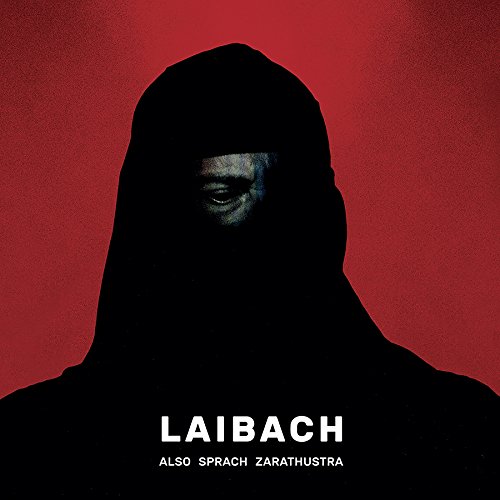
Laibach
Also Sprach Zarathustra
Release Date: Jul 14, 2017
Genre(s): Pop/Rock
Record label: Mute
Music Critic Score
How the Music Critic Score works
Buy Also Sprach Zarathustra from Amazon
Album Review: Also Sprach Zarathustra by Laibach
Great, Based on 4 Critics
Based on rating 8/10
Slovenian industrial collective Laibach composed music for a 2016 theatrical adaptation of Friedrich Nietzsche's philosophical novel Also Sprach Zarathustra, and subsequently developed their score into a full-length album, released by Mute in 2017. Surprisingly, considering the group's reputation for recording radically reworked versions of familiar rock songs, orchestral works, and even national anthems, the album has nothing to do with the similarly named Richard Strauss tone poem, best known for the usage of its opening fanfare in Stanley Kubrick's iconic sci-fi epic 2001: A Space Odyssey. Instead of the fist-pumping industrial dance anthems or martial chanting one might expect from Laibach, this is a relatively restrained album of sparse, chilling sound design -- much closer to the Haxan Cloak than KMFDM or Rammstein.
Based on rating 4.0/5
Like a hazy, cold night spent in a derelict town... Slovenian natives Laibach have been one of the longest standing industrial bands out there, enjoying several waves of underground success during their 37-year career. After their 1987 breakthrough with Opus Dei, on which they covered in a rather striking manner 'Live is Life' by Opus and Queen's 'Birth of a Nation' (retitled 'Geburt einer Nation'), the musicians garnered mixed opinions regarding their political beliefs. The inner sleeve featured a swastika consisting of 4 blooded axes, thus fueling this confusion if they were pro or anti fascism.
Based on rating 7/10
Also Sprach Zarathustra, the ninth studio album by the long-standing Slovenian outfit Laibach, would play evocatively in numerous settings. David Fincher could easily use many of these songs as backing for one of his unmistakable thrillers. The same for Denis Villenueve, whose glum flicks Prisoners and Enemy would have been well complemented by Laibach’s brooding music.
Opinion: Fantastic
Friedrich Nietzsche's infamously dense philosophical novel Also Sprach Zarathustra was modestly described by its author as (in Walter Kaufmann's 1966 translation): "the greatest present that has ever been made to [mankind] so far. This book, with a voice bridging centuries, is not only the highest book there is... it is also the deepest, born out of the innermost wealth of truth, an inexhaustible well to which no pail descends without coming up again filled with gold and goodness." Nietzsche might have had sardonic intent here, of course; but perhaps not.
'Also Sprach Zarathustra'
is available now

